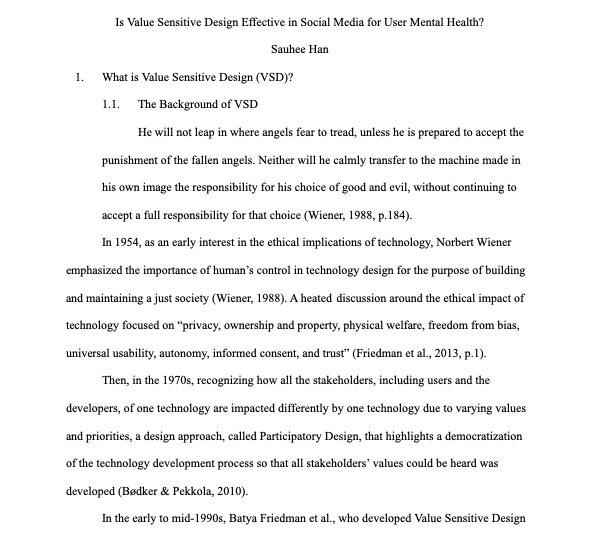link to the full documentAbstract
Value Sensitive Design (VSD) offers a methodology for technology development that systematically considers stakeholder values through conceptual, empirical, and technical investigations (Friedman et al., 2013). This paper examines the potential of VSD to address mental health concerns on social media platforms by analyzing economic, legal, political, technical, and cultural dimensions. Through case studies of Instagram's "hidden likes" feature and Facebook's "Meaningful Social Interaction" metric, the paper evaluates how effectively these designs addressed stakeholder needs, navigated value tensions, and achieved their intended goals and how they can or cannot be complemented by VSD. Its analysis demonstrates that VSD's structured approach to investigating stakeholder values and its multi-lifespan perspective make it particularly suitable for addressing social media mental health challenges. However, the paper explores how the effectiveness of VSD-guided design is ultimately constrained by platforms' profit-driven business models. This limitation highlights the need for broader systemic changes across business, legislative, economic, and societal domains to achieve sustainable improvements in user well-being. The findings suggest that while VSD provides valuable guidance for platform design, its implementation must be accompanied by fundamental changes in corporate governance and regulatory frameworks.


